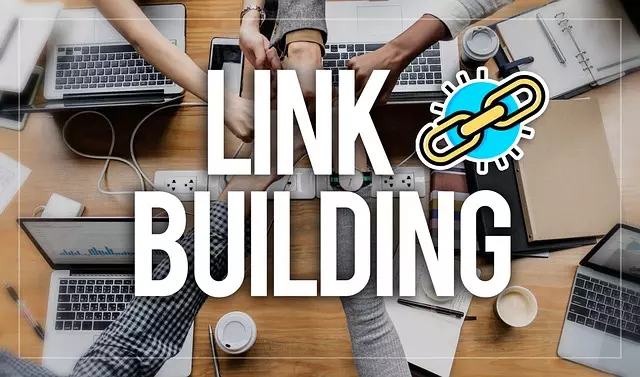Link building is a critical SEO strategy that enhances website authority and visibility by attracting high-quality backlinks from reputable sources. Businesses should create valuable content, engage influencers, and participate in discussions to earn these links. Quality over quantity is key; focusing on relevant, authoritative backlinks improves search engine rankings and drives organic traffic. Effective link building involves guest blogging, leveraging online communities, and creating comprehensive resources, tracked using tools like Google Search Console. Avoiding superficial or rushed efforts and diversifying backlink profiles is essential for long-term SEO success.
Building backlinks is an essential strategy in search engine optimization (SEO), crucial for boosting your website’s authority and visibility. In this comprehensive guide, we’ll explore the art of link building, from understanding its foundation to uncovering high-quality links. Learn effective strategies to acquire powerful backlinks, master outreach techniques, and avoid common pitfalls. By implementing these principles, you’ll navigate the landscape of SEO with confidence, leaving a trail of relevant, authoritative backlinks in your wake.
Understanding Link Building: The Foundation of SEO

Link building is a fundamental strategy in Search Engine Optimization (SEO) that involves acquiring backlinks from other websites. These backlinks serve as digital votes of confidence, indicating to search engines that your website provides valuable content worth sharing and referencing. Understanding link building is crucial for any online business or content creator aiming to boost their search engine rankings and attract organic traffic.
At its core, successful link building requires a strategic approach where you focus on earning high-quality backlinks from reputable sources. This can be achieved through various methods such as creating compelling and shareable content, collaborating with industry influencers, guest blogging, or participating in online discussions. Building a robust backlink profile not only enhances your website’s authority but also helps search engines understand the relevance of your site to specific topics or keywords.
Why Backlinks Are Vital for Your Website's Authority

Backlinks, or incoming links from other websites, are a critical component of search engine optimization (SEO). They serve as votes of confidence in your website’s authority and relevance. When high-quality websites link to yours, it signals to search engines that your content is valuable and trustworthy. This positive signal boosts your site’s ranking in search results, making it more visible to potential visitors.
Link building is a strategic process that involves attracting, earning, or creating these backlinks. It’s not just about quantity but also quality. A single link from a reputable source can carry more weight than numerous links from lesser-known or irrelevant websites. By focusing on building backlinks from authoritative sites within your industry, you enhance your website’s credibility and increase its chances of appearing higher in organic search rankings.
Identifying Relevant and High-Quality Links

Strategies to Acquire Powerful Backlinks

Building backlinks is a crucial aspect of SEO, and an effective strategy can significantly boost your website’s visibility and rankings. One of the most powerful ways to acquire backlinks is by creating high-quality content that naturally attracts links from other sites. This could involve conducting in-depth research, offering unique insights, or presenting data in an innovative way, making your content a valuable resource for others. Engaging with industry influencers and experts can also be beneficial; reaching out to them for comments or collaborations increases the chances of earning backlinks from reputable sources.
Another strategy is to engage in what’s known as link building outreach. This involves directly contacting webmasters or bloggers in your niche, offering mutually beneficial partnerships such as guest blogging, where you contribute content to their site in exchange for a backlink. It’s important to maintain a focus on quality and relevance; backlinks from authoritative sites within your industry carry more weight than those from irrelevant or low-quality pages.
Effective Outreach Techniques for Link Building

Building backlinks is a strategic process that forms a crucial aspect of Search Engine Optimization (SEO). Effective outreach techniques are key to achieving high-quality links from authoritative sources, thereby enhancing your website’s visibility and credibility. One powerful method is to identify industry influencers or bloggers who create content relevant to your niche. By engaging with these individuals, you can request guest blogging opportunities or offer valuable resources that they might feature on their websites, naturally linking back to yours.
Another successful approach is to participate in online communities and forums related to your industry. Sharing insightful information, answering questions, and establishing yourself as an expert can lead to organic backlinks as users cite your contributions in their content. Additionally, creating comprehensive resources like e-books or guides that solve common problems within your target audience’s interests can attract links from other websites seeking to provide valuable information to their readers.
Analyzing and Measuring Your Link Building Success

Analyzing your link building efforts is crucial for understanding their impact on your SEO strategy. Keep an eye on metrics like domain authority and page rank, as these indicators reflect the quality and quantity of backlinks. Tools like Google Search Console and Ahrefs can help track backlink profiles, revealing which links are driving the most traffic and improving your site’s visibility in search results. Regularly monitor these insights to identify trends, successful strategies, and areas for improvement.
Measuring link building success involves setting clear goals and tracking them over time. Define what a “good” backlink looks like for your niche – relevant, high-quality sites carry more weight. Compare your current performance against industry benchmarks, but remember that every website is unique. Adapt your link building tactics based on these analyses, focusing on acquiring links from authoritative sources that align with your content and audience.
Common Mistakes to Avoid During Link Building

Many businesses make the mistake of approaching link building in a superficial or hasty manner, which can lead to poor results and even penalties from search engines. One common error is focusing solely on quantity rather than quality. While having numerous backlinks is beneficial, each link should be strategically placed and relevant to your niche. Avoid low-quality or spammy websites that offer little value; instead, aim for authoritative and reputable sources within your industry.
Another blunder is neglecting the importance of diversity in your backlink profile. Having links from a variety of sources, including blogs, forums, news outlets, and educational institutions, signals to search engines that your website offers valuable content. Steer clear of relying too heavily on one type of link or buying links, as these practices can harm your SEO efforts in the long run. Remember, sustainable link building is an art, not a quick fix; it requires patience, strategic planning, and a deep understanding of your target audience’s needs.



